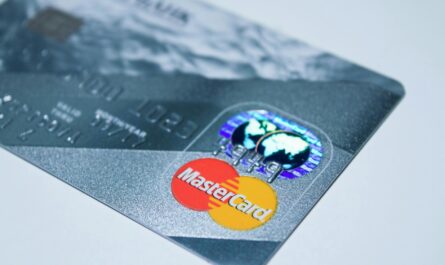Thinking about a personal loan? It can feel overwhelming navigating the options, but understanding the basics can empower you to make the best choice for your financial needs. This guide will walk you through everything you need to know.
What is a Personal Loan?
A personal loan is a lump sum of money you borrow from a lender, like a bank or credit union, that you repay over a set period with interest. Unlike secured loans (like mortgages or auto loans), personal loans are unsecured, meaning they don’t require collateral. This makes them accessible to many, but usually comes with higher interest rates. 
Types of Personal Loans
There are various types of personal loans available, each with its own terms and conditions. Some common types include:
- Fixed-rate loans: Your interest rate stays the same throughout the loan term.
- Variable-rate loans: Your interest rate can fluctuate based on market conditions.
- Secured loans: While less common for personal loans, you might find some that require collateral. These are often offered at lower rates.
- Unsecured loans: These are the most common type, not requiring collateral.
Choosing the right type depends on your risk tolerance and financial situation. Consider consulting a financial advisor to help you decide which type is best suited for your financial goals.
How to Apply for a Personal Loan
The application process is usually straightforward. You’ll typically need to provide information about your income, credit history, and the purpose of the loan. Lenders will check your credit score, so maintaining good credit is vital.  You can apply online, by phone, or in person, depending on the lender. Compare offers from different lenders before making a decision to ensure you get the best interest rate possible. Be sure to check the lender’s reputation and read reviews.
You can apply online, by phone, or in person, depending on the lender. Compare offers from different lenders before making a decision to ensure you get the best interest rate possible. Be sure to check the lender’s reputation and read reviews.
Factors Affecting Interest Rates
Several factors determine the interest rate you’ll receive on a personal loan. These include your credit score, the loan amount, the loan term, and the lender. A higher credit score usually translates to a lower interest rate. A longer repayment term might result in lower monthly payments but higher overall interest costs. [IMAGE_3_HERE]
Managing Your Personal Loan
Once you’ve secured a loan, it’s crucial to manage it responsibly. Make your payments on time, and avoid missing payments, to prevent any negative impacts on your credit score. Creating a budget to manage your finances can help ensure you can meet your monthly repayments. You can always explore options like debt consolidation if you find yourself struggling to pay back your loans. For more tips, consider this helpful guide: managing your finances.
Conclusion
Securing a personal loan can provide the financial flexibility needed for various purposes. By carefully weighing your options and understanding the terms and conditions, you can make an informed decision that benefits your financial well-being. Remember to compare offers, maintain a healthy credit score, and manage your loan responsibly. Consider reading up on the latest financial regulations to protect yourself.
Frequently Asked Questions
What is a good credit score for a personal loan? A credit score above 700 is generally considered good for securing favorable interest rates on a personal loan.
How long does it take to get approved for a personal loan? The approval process can take anywhere from a few days to a few weeks, depending on the lender and the complexity of your application.
What are the potential risks of taking out a personal loan? Potential risks include high interest rates, difficulties in repayments, and negative impact on your credit score if payments are missed.
Can I use a personal loan for any purpose? While most lenders don’t specify the purpose of the loan, some may have restrictions. It’s best to clarify this with your lender.
What happens if I miss a payment? Missing a payment can negatively impact your credit score and may incur late fees.



